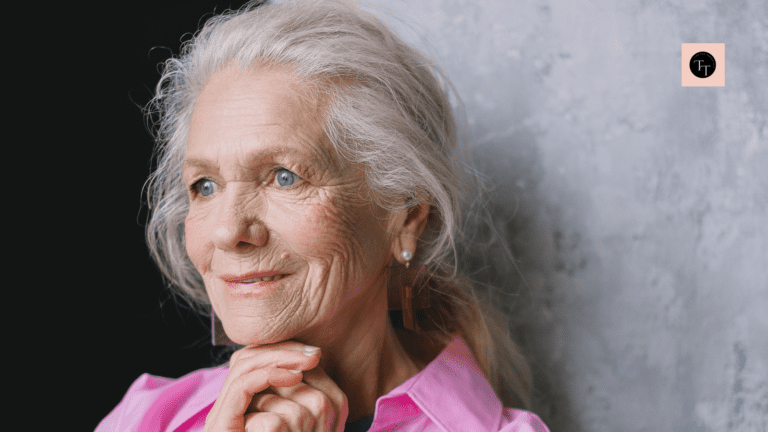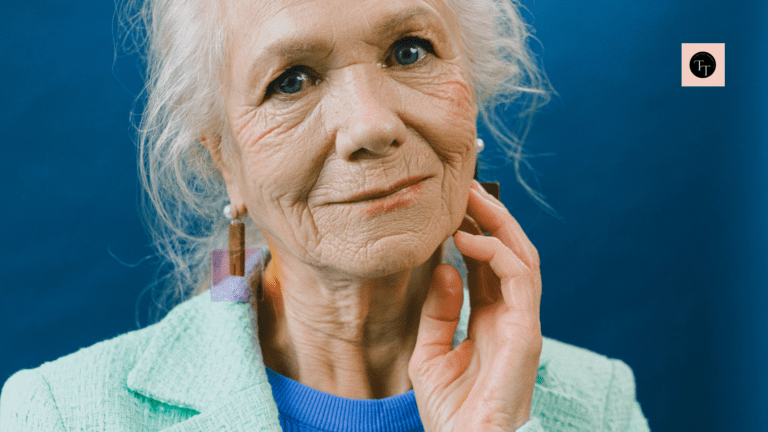Practicing Self-Awareness: Gaining Clarity & Purpose in Life!
The key to understanding your thoughts, feelings, and actions, in depth, is practicing self-awareness. Developing self-awareness is the first step towards personal growth and a more fulfilling life.
Practicing self-awareness can reduce anxiety and improve emotional well-being. It helps you make better decisions and solve problems more effectively.
Practicing self-awareness also strengthens your relationships with yourself and others, giving you a sense of purpose and fulfillment.
Age presents a myriad of challenges, especially for women. There is a high possibility that you have to live alone in an empty nest. Practicing self-awareness can be your rock in such challenging times,
Practicing self-awareness helps you stay connected with your inner self and manage feelings of loneliness or anxiety. It gives energy and purpose to your life. You can create a more joyful and meaningful life, even in solitude.
I feel very strongly about practicing self-awareness to take control of one’s life, as I have been through a very challenging period during the pandemic years. I could lift myself out of that mess only because I chose to embark on the journey of self-discovery.
In this blog post, I will dive deeper into the subject. I hope I can motivate you to transform your life too!
What is Self-Awareness?
“Self-awareness is not just about uncovering our limitations; it’s about discovering our strengths and using them to our advantage.” – Daniel Goleman
Self-awareness is not an easy concept to grasp, at first. Typically, we become aware of a “thing” through our senses. We can see it with our eyes or hear it with our ears. But how do we gain self-awareness? How do we understand our own thoughts, feelings, and aspirations?
This is where practicing self-awareness in our daily lives is, both difficult and important. We need to examine our minds and see our true selves constantly. This understanding helps us make better choices and live a more authentic life.
Self-Awareness vs. Self-Consciousness
These two terms can also be confusing to a beginner. However, their meaning are opposite; and not similar.
Self-awareness is about understanding yourself without judgment. On the other hand, self-consciousness is when you feel overly aware and worried about what others think of you.
Self-awareness is empowering, while self-consciousness is limiting.
Benefits of Practicing Self-Awareness
There are 4 key benefits of practicing self-awareness. Senior women battling the challenges of finding a balance and purpose in life will find them especially helpful.
1. Improved Emotional Regulation
Being self-aware helps you understand your feelings. Knowing what makes you happy or sad, can help you manage your emotions better. This means you can stay calm even during tough times.
By recognizing your feelings, you can respond thoughtfully instead of reacting impulsively. This leads to less anxiety and a more peaceful life.
2. Enhanced Decision-Making
Self-awareness allows you to think clearly. When you understand your values and beliefs, you can make better choices. You’ll weigh your options and consider the consequences.
Practicing self-awareness helps you solve problems more effectively. You can choose what is best for you with confidence. Of course, the more you practice self-awareness, the better you get at making good decisions.
3. Better Relationships
Practicing self-awareness also helps you connect better with others. Self-awareness is important for communicating your thoughts and feelings with clarity.
Practicing self-awareness even improves your understanding of the feelings of others. You develop a greater sense of compassion and empathy. You are less likely to have conflicts with others, which leads to more meaningful relationships and stronger bonds with family and friends.
4. Increased Sense of Purpose
Practicing self-awareness can give your life more meaning. When you reflect on what is important, you can set goals that align with your values. This creates a sense of direction in your life.
You feel more fulfilled and satisfied as you work towards these goals. Knowing your purpose and place in life is sure to bring joy and motivation. You will love to live!
Practical Techniques for Developing & Practicing Self-Awareness
Self-awareness is not some kind of spiritual mumbo-jumbo that is nice to read, listen to, or talk about. Self-awareness is a skill that you can develop and practice in your daily life.
I have already explained the 4 benefits of practicing self-awareness. Now, let me explain 6 practical techniques for developing & practicing self-awareness.
A word of caution though; don’t start with meditation or yoga, just because everyone else is into it. You will get there, but prepare yourself first, with some of the basics.
1. Identifying Values
The first, and an important step is to conduct a reality check of yourself and your values.
Discover Your Core Values
Identifying your core values is crucial to getting started on your path to practicing self-awareness. Take time to reflect on what matters most to you in life.
Align Your Actions with Your Values
Once you know your values, strive to align your daily actions with them. This consistency will help you feel more authentic and content.
2. Journaling
Journaling is a powerful way to understand your inner self; which is what self-awareness is all about. By the way, a journal is not a diary. A diary is typically a chronological note of activities of the day.
Keeping a journal, on the other hand, is writing the important thoughts and emotions that pass your mind.
“Whether you’re keeping a journal or writing as a meditation, it’s the same thing. What’s important is you’re having a relationship with your mind.” – Natalie Goldberg
Start a Reflective Journaling Practice
Journaling is a simple yet effective tool for self-exploration. Set aside a few minutes, each day to write down your thoughts and feelings.
Use Prompts to Guide Your Journaling
If you’re unsure where to start, use prompts like “What am I grateful for today?” or “What challenges did I face and how did I handle them?”
3. Seeking Feedback
I must admit that seeking feedback can be a painful experience at times. This is mainly because it takes time and an open mind to accept critical feedback without getting defensive or outright rejecting it.
Value Feedback from Trusted Loved Ones
Feedback from friends and family you trust can provide valuable insights about yourself that you may have overlooked.
Ask for and Use Feedback Constructively
When asking for feedback, be specific about what you’d like input on. Listen with an open mind and consider how you use the feedback to grow.
4. Practicing Gratitude
Practicing gratitude enhances the practice of self-awareness. Gratitude lets you focus on the positive aspects of life, appreciate compassion, and foster mindfulness. The practice of gratitude strengthens emotional well-being and inner power.
Incorporate Simple Daily Gratitude Practices
Expressing gratitude, even for small things, can have a big impact on your well-being. Try keeping a gratitude journal or sharing what you’re thankful for with loved ones.
Gratitude Boosts Mental Health and Self-Awareness
Studies show that practicing gratitude regularly can reduce stress, improve mood, and enhance self-awareness by shifting your focus to the positive aspects of life.
5. Mindfulness Meditation
Mindfulness is being fully present and aware of the current moment, without judgment. Meditation is a technique for focusing the mind. There are many, such as deep breathing, visualization, or chanting.
Mindfulness meditation is a specific form of meditation that combines the concepts of mindfulness and meditation. In this practice, you focus on your breath, bodily sensations, or passing thoughts, observing them without attachment or judgment.
Mindfulness Meditation – Getting Started
You should attend a mindfulness meditation (Vipassana Meditation) course to learn the basics. YouTube videos are not the way to learn the basics, for sure.
Here is my recommendation:
The technique of Vipassana Meditation is taught at ten-day residential courses during which participants learn the basics of the method, and practice sufficiently to experience its beneficial results. There are no charges for the courses – not even to cover the cost of food and accommodation. – dhamma.org
They have locations all over the world. I attended my first course at DHAMMA KAÑCANA, in Kanchanaburi Province of Thailand. It was an experience I am never going to forget!
Mindfulness Meditation Benefits Seniors
Mindfulness meditation helps seniors manage age-related challenges, reduce stress and anxiety, and cultivate a greater sense of inner peace and self-awareness.
“Vipassana is the art of living. Not the art of escaping.” – S. N. Goenka
6. Engaging in Mind-Body Practices
Engaging in mind-body practices connects physical movement with mental focus, fostering greater self-awareness. They help tune into your body’s signals, calm the mind, and align emotions, enhancing physical, mental, and spiritual growth.
Try Yoga, Tai Chi, or Qigong
These ancient practices combine gentle movements, breathing techniques, and meditation to promote physical and mental well-being. They are perfect for seniors and are quite a popular activity in Eastern societies.
Mind-Body Practices Connect Body and Mind
By engaging both the body and mind, these practices can help you become more aware of your thoughts, feelings, and physical sensations, leading to greater self-awareness.
In Conclusion
Incorporate self-awareness into your daily routine with small steps. Start with a few minutes of mindfulness each morning. Make small changes like journaling or taking deep breaths when stressed.
Remember to be patient and consistent. Self-awareness is a journey, not a destination. Take it one step at a time.







